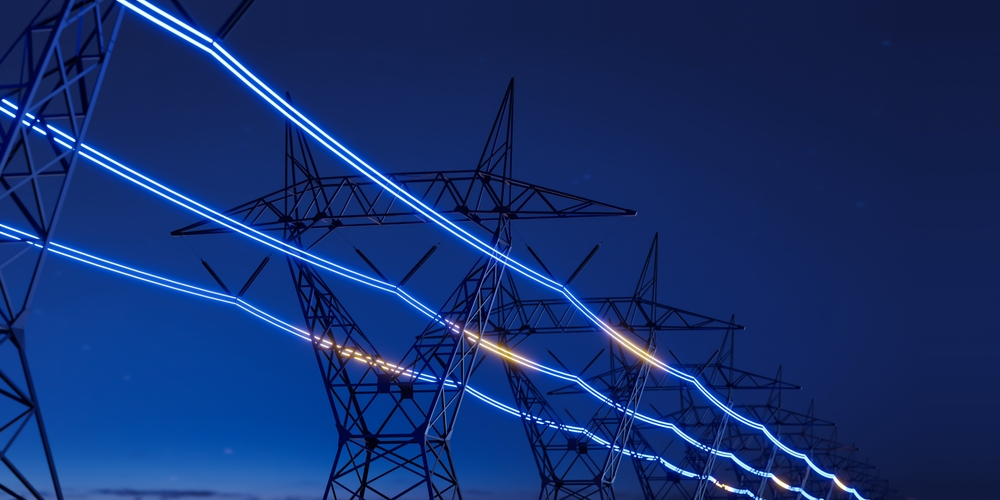

This course is important for appreciating smart grids even for those with no engineering background. It gives key information about the functioning of the smart grids, their advantages, and how they facilitates the integration of renewable energy sources, energy saving, reliability and management of the grid.
| City | Start Date | End Date | Fees | Register | Enquire | Download |
|---|---|---|---|---|---|---|
| Dubai | 23-06-2025 | 27-06-2025 | 4300 $ | Register | Enquire | |
| Singapore | 30-06-2025 | 04-07-2025 | 5500 $ | Register | Enquire | |
| Barcelona | 07-07-2025 | 11-07-2025 | 6200 $ | Register | Enquire | |
| Amsterdam | 14-07-2025 | 18-07-2025 | 6200 $ | Register | Enquire | |
| Jakarta | 21-07-2025 | 25-07-2025 | 4950 $ | Register | Enquire | |
| Dubai | 28-07-2025 | 01-08-2025 | 4300 $ | Register | Enquire | |
| Krakow | 04-08-2025 | 08-08-2025 | 6200 $ | Register | Enquire | |
| Vienna | 11-08-2025 | 15-08-2025 | 6200 $ | Register | Enquire | |
| Madrid | 18-08-2025 | 22-08-2025 | 6200 $ | Register | Enquire | |
| Amsterdam | 25-08-2025 | 29-08-2025 | 6200 $ | Register | Enquire | |
| Kuala Lumpur | 01-09-2025 | 05-09-2025 | 4950 $ | Register | Enquire | |
| Istanbul | 22-09-2025 | 26-09-2025 | 4950 $ | Register | Enquire | |
| London | 29-09-2025 | 03-10-2025 | 6200 $ | Register | Enquire | |
| Casablanca | 06-10-2025 | 10-10-2025 | 4950 $ | Register | Enquire | |
| Dubai | 13-10-2025 | 17-10-2025 | 4300 $ | Register | Enquire | |
| London | 20-10-2025 | 24-10-2025 | 6200 $ | Register | Enquire | |
| Vienna | 27-10-2025 | 31-10-2025 | 6200 $ | Register | Enquire | |
| Madrid | 03-11-2025 | 07-11-2025 | 6200 $ | Register | Enquire | |
| Kuala Lumpur | 10-11-2025 | 14-11-2025 | 4950 $ | Register | Enquire | |
| London | 17-11-2025 | 21-11-2025 | 6200 $ | Register | Enquire | |
| Casablanca | 24-11-2025 | 28-11-2025 | 4950 $ | Register | Enquire | |
| Rome | 01-12-2025 | 05-12-2025 | 6200 $ | Register | Enquire | |
| Amsterdam | 08-12-2025 | 12-12-2025 | 6200 $ | Register | Enquire | |
| Madrid | 15-12-2025 | 19-12-2025 | 6200 $ | Register | Enquire | |
| Kuala Lumpur | 22-12-2025 | 26-12-2025 | 4950 $ | Register | Enquire |
Consumers increasingly demand a grid system that is safe, secure, and reliable. The push for smart grids has gained momentum with advancements in technology. This sophisticated automated network is designed to track electricity usage and improve distribution.
In an era where global warming is a critical concern, finding cost-effective ways to save energy and enhance energy self-sufficiency is essential. A smart grid facilitates the consumption and production of renewable energy sources by allowing customers to generate their electricity for personal use and sell any excess back to energy companies.
This e-learning module on smart grids for non-engineers outlines the role of smart meters in residential and commercial settings. Smart grids also encompass demand response mechanisms that balance electricity consumption with generation capabilities, while integrating emerging technologies such as energy storage systems and the increased adoption of electric vehicles.
At the end of the Smart Grids for Non-Engineers course, participants will be able to:
Unit 1: Conventional Electrical Generation, Generation Transmission, and Distribution Process:
Unit 2: Types of Energy Sources, Non-Conventional Energy Sources:
Unit 3: Smart Grid Fundamentals:
Unit 4: Smart Homes and Consumer Engagement:
In this unit: Energy Storage Systems and Smart Sensors:
In the course "Engineering for Non-Engineers: Smart Grids in the Power System," participants will raise their awareness of smart grid technology and its applications. This program covers the basics, including what a smart grid is and energy smart grid technology solutions, without requiring prior engineering knowledge.
Participants will leave the course equipped with knowledge about the relevance of smart grid systems for efficient power delivery and sustainability. This course provides foundational training necessary to understand smart grid management tools and enhance a smart grid certification program.
Participants in the Smart Grids for Non-Engineers course will harness the possibilities of smart grid energy without needing an engineering background. Our simple, informative, and intuitive smart grid course is tailored specifically for non-engineers, enabling them to rediscover the possibilities of future energy management.



















